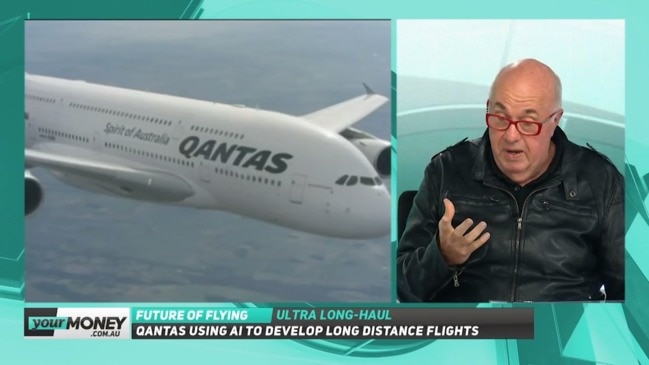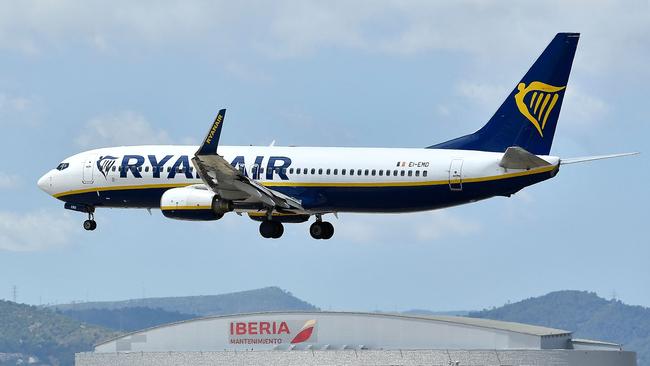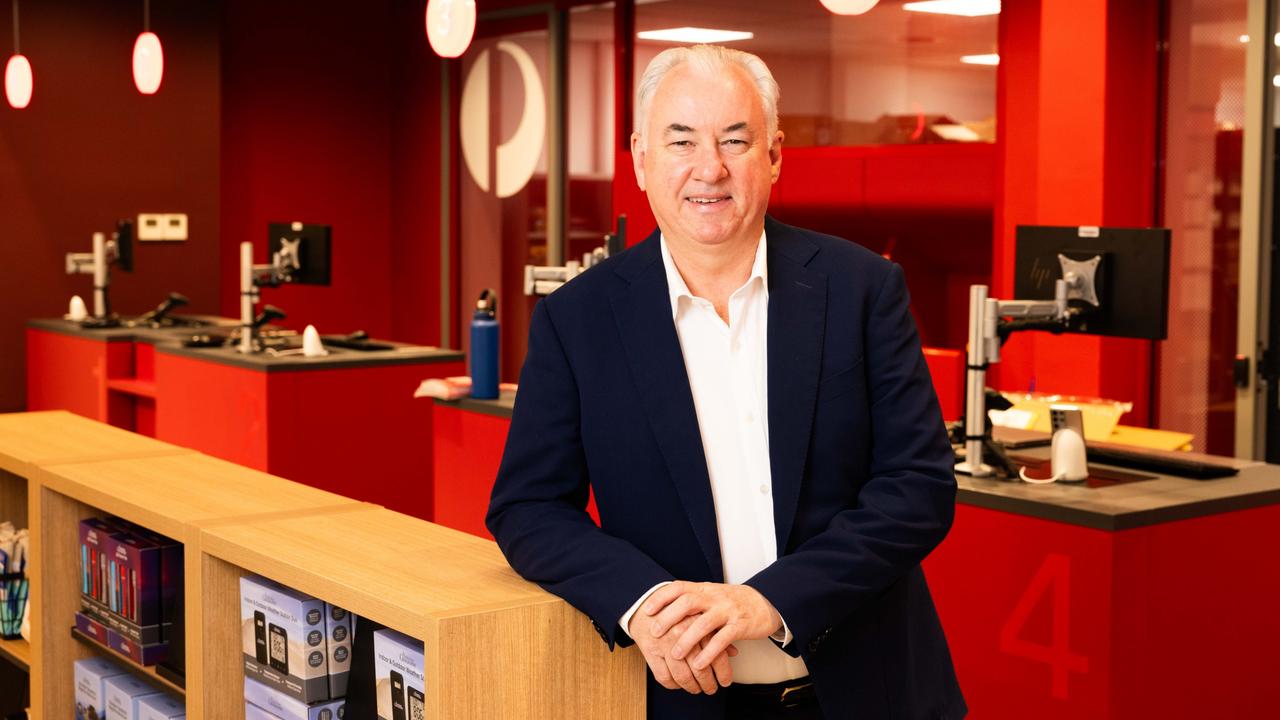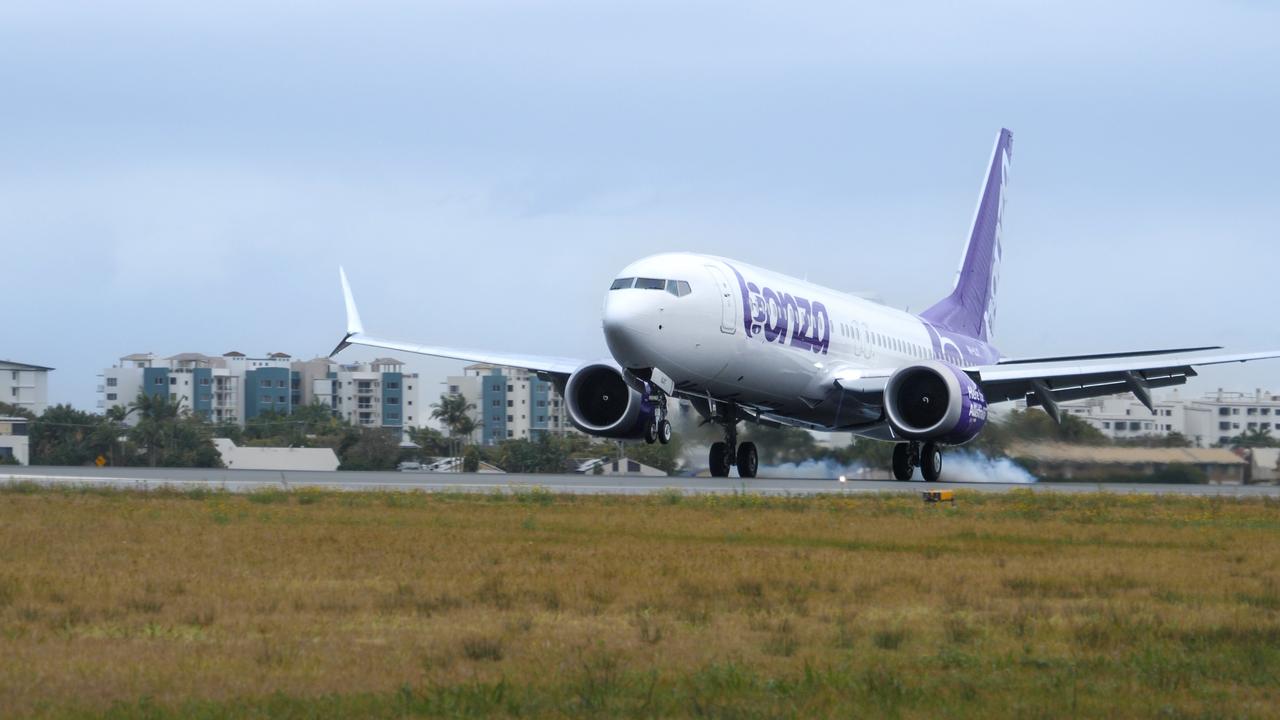Qantas using AI to track weather, save fuel and schedule flights
The use of AI in the airline industry is more than customer chatbots and flight status updates, with Qantas among the early adopters of bespoke tech that has saved it nearly $100m.

Business
Don't miss out on the headlines from Business. Followed categories will be added to My News.
The potential of artificial intelligence in the aviation industry extends well beyond chatbots and flight status updates with the 21st century technology being applied across many aspects of airline operations.
Flight scheduling, route optimisation, predictive maintenance and emissions reduction are just some of the uses airlines have found for AI with its application only expected to grow.
In the case of Qantas, AI has been used since 2018 to dynamically adapt flight routes to weather patterns and aircraft capability as well as for fuel supply.
It also uses it to help manage external constraints such as airspace closures due to air traffic control, war zones or volcanic ash.
It’s estimated the technology, called Constellation, has delivered a 2 per cent fuel saving, equivalent to $92m on the airline’s $4.6bn annual fuel bill.
Irish low cost carrier Ryanair also employed AI to determine the aircraft best suited to different routes based on fuel efficiency.
Amazon chief technology officer Werner Vogels told the International Air Transport Association’s world transport summit this month, even aircraft of the same type could differ in terms of fuel efficiency.
“They (Ryanair) are choosing the most efficient aircraft they have to do the multi hops in Europe, because in Europe most airline fuel goes on taking off,” said Mr Vogels.
“So it’s not only a 737, it’s that particular 737 because it’s slightly more fuel efficient than the others. First you need to know that and then you can put it into your AI system to work out what aircraft suit flying particular routes.”

Korean Air recently announced plans for an AI contact centre to answer customer enquiries through voice bots and chat bots by next February.
Despite concerns about the spread of automation, Korean Air said the platform offered “more personalised and efficient customer support, surpassing basic call centre services”.
As dubious as that may sound, the amount of data collected by airlines from customers through flight bookings and loyalty programs made it possible, experts said.
Automation Anywhere CEO Mihir Shukla said the simple truth was that AI was capable of doing what 1000 people took a year to do, in just two days.
He said airlines should treat the capabilities of AI as a business strategy rather than an IT strategy and look about reskilling their workforce.
“We won’t be able to compete without this technology but if we try to implement it fast, you’re going to get push back from employees and labour unions,” said Mr Shukla at the world transport summit.
“Reskilling is essential because there will come a time when if you haven’t re-skilled, CEOs will be between a rock and a hard place.”
In an industry as safety conscious as aviation, it was unlikely AI would be adopted in areas without certainty it was “perfect”.
Yet there was considered to be huge potential for AI to predict when aircraft components might fail and send them off for repairs or replacement.
“The detection part is crucial for airlines with limited options for maintenance because it means they can bring the aircraft to the place where it can undergo maintenance ahead of time” said Mr Vogels.
“There’s huge cost savings to be had in that.”
For customers, the future appeared automated with other airlines watching the Amazon-designed Korean Air model closely to see if it delivered the “hyper-personalised” experience it promised.
Mr Vogels said Amazon was successful because it made the customer feel “you’re on their side” and it was “quick, easy and efficient”.
“The crucial thing is making your customers central,” he said.
“Insurance companies have difficulty keeping customers because once they file a claim they’re made to feel like a criminal. If you treat customers like a criminal they will immediately go somewhere else.”
More Coverage
Originally published as Qantas using AI to track weather, save fuel and schedule flights





